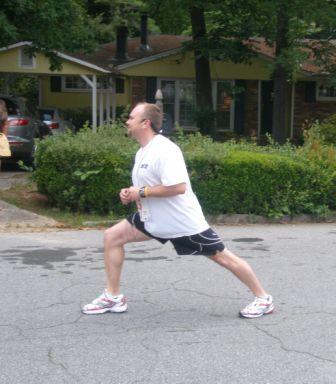Running and your Addictive Personality
Wednesday, June 17th, 2009A lot of people point to long distance runners as having addictive personalities. While distance running and training do take a large amount of discipline, when does this discipline become an addiction? There are many signs of an addiction, but the universal result of an addiction is when it becomes an overbearing aspects of your life. This all consuming addiction leads you to neglect other portions of your life. Distance running has fallen into this category for some runners. They get up at 3 am to go for a run, often missing social activities from the night before. Some distance runners may go to work exhausted after their morning run, hurting their productivity and career, much like an alcoholic who comes to work with a hangover. Other distance runners have neglected their families by running races or long distance trail runs on the weekends, missing family events. Worse yet, some distance runners take long trips to travel to destination races, resulting in them being away from their families and loved ones for a couple of days at a time.
First off, part of the problem is that the “addictive personality” concept, that is often attributed to excessive distance runners, is inconclusive. But, it is easy to compare the similarities between addicted runners and substance addicts. For example, much like the substance addict, runners use running to relieve stress and eventually become dependent on it. There are many runners that if they miss a day of running, the rest of their day is ruined and they may feel physically ill, not being able to function, much like the substance addict does.
There is also a physical similarity between substance abusers and running abuse. Both activities release serotonin from the brain which gives you a heightened state or “high.” In fact, many former substance addicts have turned to running to help them fight against their addiction. But is running just replacing a negative addiction with a more positive addiction? Is it merely changing how the addict gets their serotonin and their “high?” For these individuals, running and exercise becomes a better alternative to their substance addiction, much like former alcoholics become habitual cigarette smokers. So even though you don’t abuse substances could you be feeding your addictive personality with running?
There are multiple theories as to why some people may have a more addictive personality than others. One is that it can be inherited, which seems to be most prevalent in alcoholics. Maybe the same could be true for running, many children who run often have parents who are runners. The addiction to running can also be cognitive or learned, meaning since you attain a “runner’s high” from running then you want to continue to do that activity to achieve the same feeling. Other more logical reasons are availability and societies acceptance which makes running an addiction available to everyone. Just like alcohol is abused more than harder to get and less accepted illegal drugs.
So how can you make sure your addiction to running doesn’t become an obsession? You can become a female; on average Men become more easily addicted than Women. If you are a Man then that probably won’t change, so if you can’t beat them, join them; Men that are married are less likely to develop an addiction. If neither of these are an option for you then the best thing you can do is monitor yourself. Often we begin an activity and continue to do it without stopping to think about the results. Examine your running and decide if you are giving up too many other things in your life in order to continue to run long distances. Unless you are making a living doing it, you are probably making some sacrifices to continue this passion for distance running.
Be careful, running is just like everything else in life, not healthy when done in excess.












